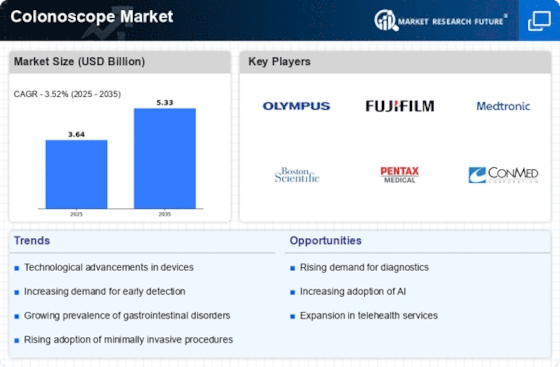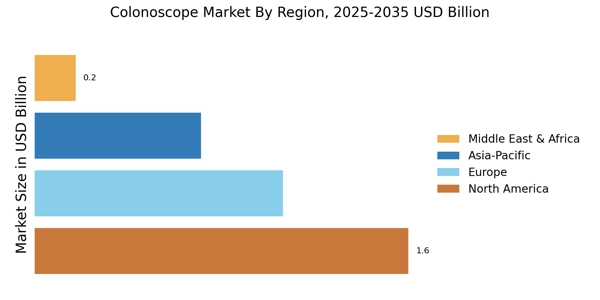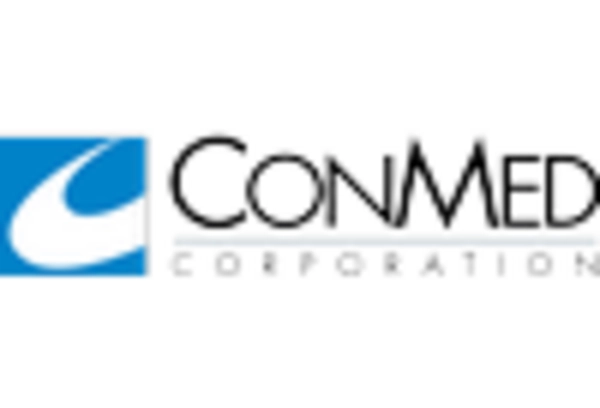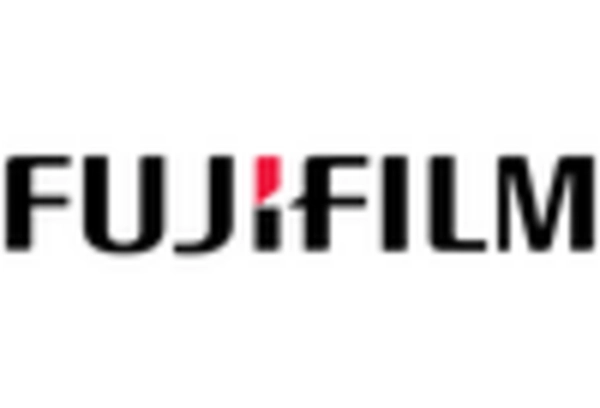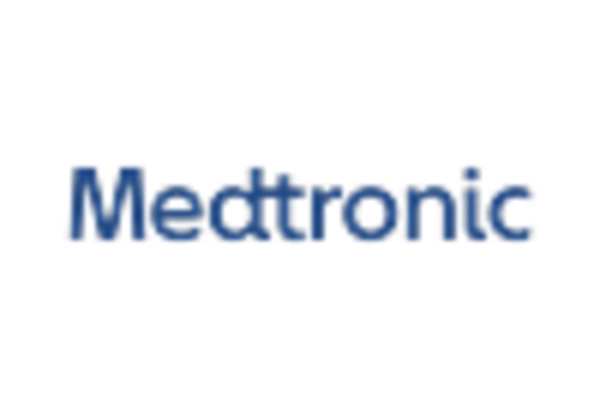Rising Incidence of Colorectal Cancer
The increasing prevalence of colorectal cancer is a primary driver for the Colonoscope Market. According to recent statistics, colorectal cancer ranks as the third most common cancer worldwide, with millions of new cases diagnosed annually. This alarming trend necessitates regular screening and early detection, which in turn fuels demand for advanced colonoscopes. As healthcare providers emphasize preventive measures, the market for colonoscopes is expected to expand significantly. The Colonoscope Market is likely to witness a surge in product innovations aimed at enhancing diagnostic accuracy and patient comfort, thereby addressing the growing need for effective screening solutions.
Technological Innovations in Endoscopy
Technological advancements in endoscopic equipment are transforming the Colonoscope Market. Innovations such as high-definition imaging, artificial intelligence integration, and enhanced maneuverability are improving the efficacy of colonoscopies. These advancements not only facilitate better visualization of the colon but also enhance the overall patient experience. The introduction of advanced features, such as wireless connectivity and real-time data analysis, is likely to attract healthcare providers seeking to improve diagnostic capabilities. As a result, the Colonoscope Market is poised for growth, driven by the demand for state-of-the-art endoscopic solutions that meet the evolving needs of clinicians and patients alike.
Regulatory Support for Screening Programs
Regulatory bodies are increasingly supporting screening programs for colorectal cancer, which is positively impacting the Colonoscope Market. Guidelines recommending regular screenings for at-risk populations are being established, leading to a rise in the number of procedures performed. This regulatory support not only encourages healthcare providers to adopt colonoscopy as a standard practice but also stimulates market growth by increasing the demand for colonoscopes. As policies evolve to prioritize preventive care, the Colonoscope Market is likely to expand, with manufacturers responding by developing innovative products that align with regulatory standards and enhance patient care.
Aging Population and Healthcare Expenditure
The aging population is a crucial factor influencing the Colonoscope Market. As individuals age, the risk of developing colorectal conditions increases, leading to a higher demand for screening procedures. Additionally, healthcare expenditure is on the rise, with governments and private sectors investing more in preventive healthcare measures. This trend is likely to result in increased funding for colonoscopy programs and the procurement of advanced colonoscopic equipment. Consequently, the Colonoscope Market is expected to experience robust growth, driven by the dual factors of an aging demographic and increased healthcare investments aimed at improving patient outcomes.
Increasing Awareness of Preventive Healthcare
There is a growing awareness of preventive healthcare among the population, which is significantly impacting the Colonoscope Market. Educational campaigns and initiatives by health organizations are encouraging individuals to undergo regular screenings for colorectal cancer. This heightened awareness is leading to an increase in the number of colonoscopies performed, thereby driving market growth. Furthermore, as more people recognize the importance of early detection, the demand for colonoscopes is expected to rise. The Colonoscope Market is likely to benefit from this trend, as healthcare systems adapt to accommodate the increasing number of screenings and invest in advanced colonoscopic technologies.


